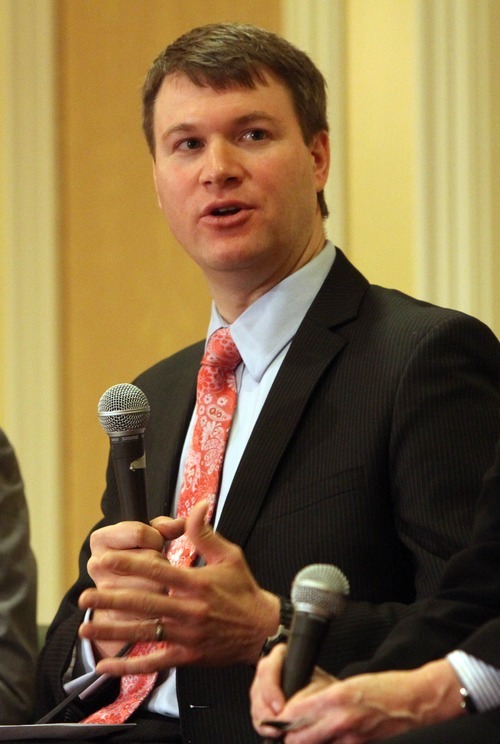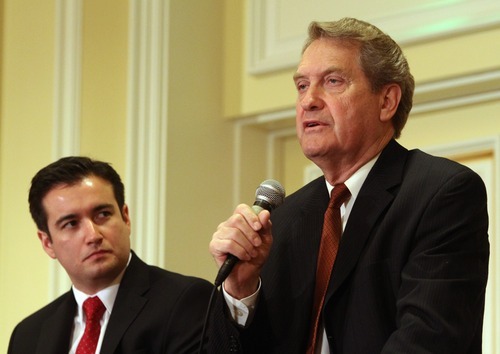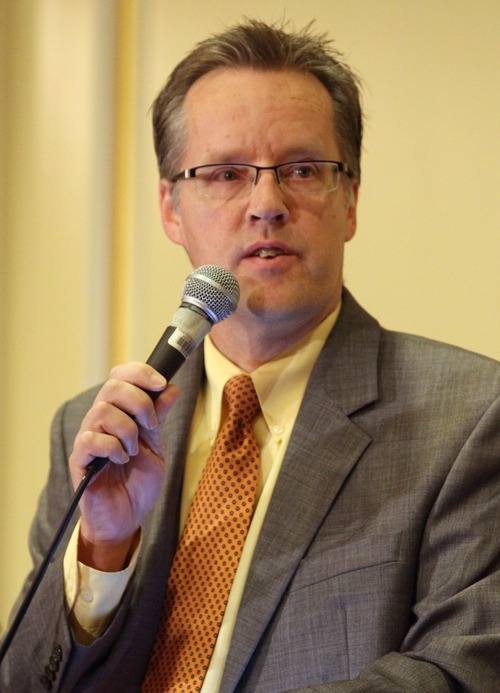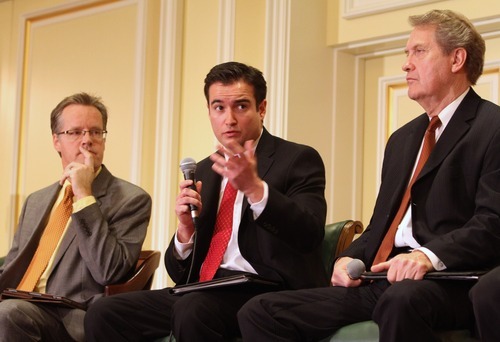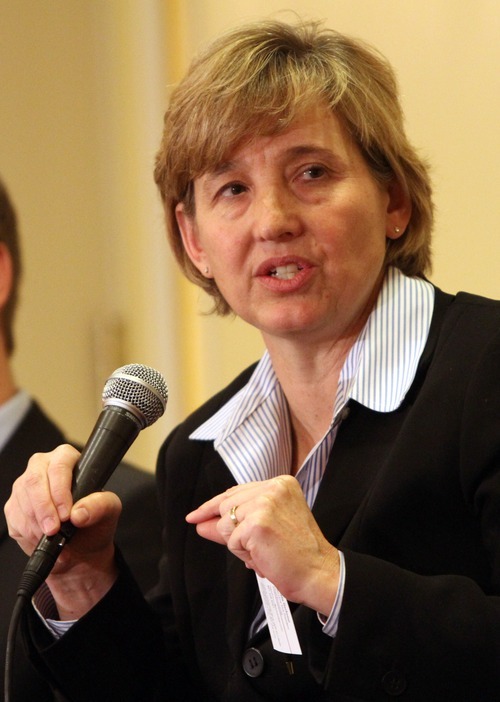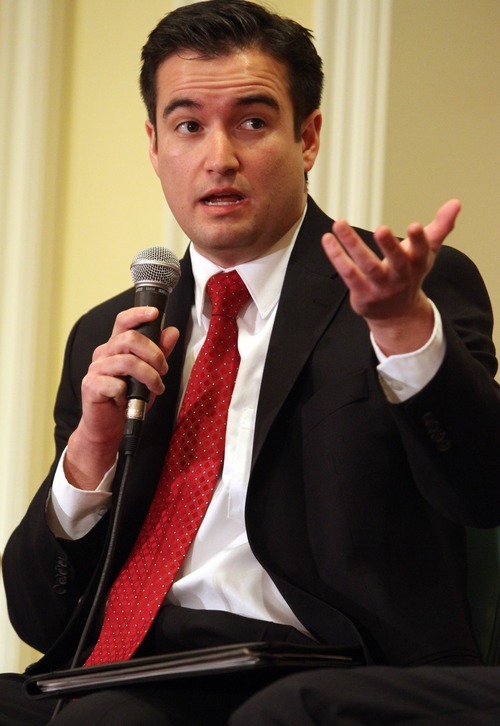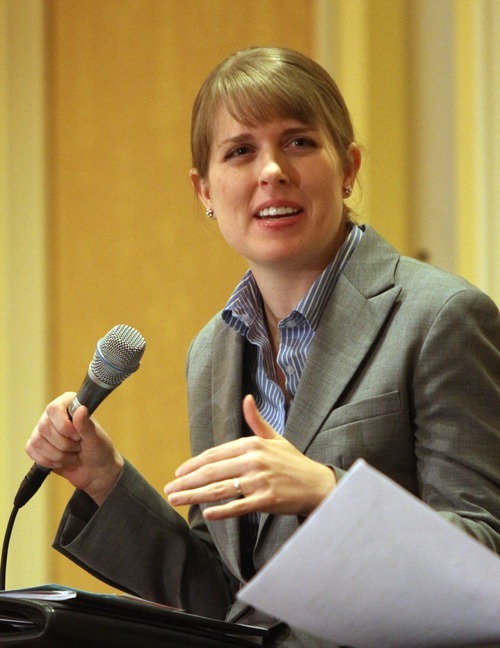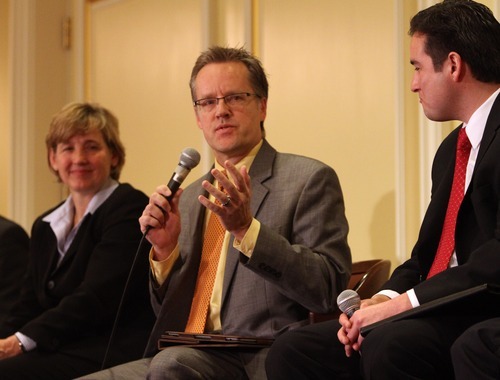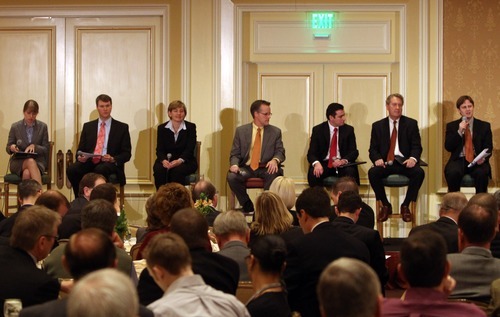This is an archived article that was published on sltrib.com in 2012, and information in the article may be outdated. It is provided only for personal research purposes and may not be reprinted.
Unease about Europe's debt crisis, gridlock in Congress and slipping educational attainments in Utah are casting shadows over the state, even as evidence mounts that its recovery from the recession is outstripping the country.
Speaking to 400 people Thursday, members of the Utah Economic Council, which advises the Salt Lake Chamber, were largely optimistic about Utah's business prospects this year. But they said the speed of recovery isn't likely to match brisk upswings of the past.
"The recession ended two years ago. But it doesn't feel like it," said Steve Kroes, president of the Utah Foundation, adding that "we've clearly turned around over the last 1 ½ years. But we dug a hole so deep [that] we are still in the hole."
Chamber economist Natalie Gochnour said 2011 brought fresh uncertainties that held back the U.S. and Utah economies — the earthquake in Japan, the Arab Spring uprisings, an oil price spike and persistent unemployment.
"We've worked through a lot of those problems," Gochnour told the audience at the Little America Hotel in Salt Lake City, which included Gov. Gary Herbert. But, she cautioned, more political stalemate could spoil the progress evident at the end of last year.
"The secret to 2012 lies squarely in policy responses to this economy. If Congress looks through an economic lens as they make their decision, we will have a very strong year. If they don't, we will underperform," she said.
The overarching message of guarded optimism resonated with some of the audience.
"For Utah, it will be a better year," said John Downen, an economist with the University of Utah's Bureau of Business and Economic Research. "There is the international uncertainty. Our export profile makes us a little vulnerable [to Europe's woes]. But our economic diversity is a plus."
Said Robert Reed, sales and marketing director for Cameron Construction in Salt Lake City, "I see [Utah remaining] in the top five states of the union. We'll be a good [contrast to] what is happening around us."
Even so, business will be difficult, he said. Cameron's revenue last year was the best in a decade, but profit margins were tight, and 2012 is expected to be the same. Bigger and smaller construction companies are competing for the midsize health care, energy and other jobs where Cameron focuses.
"They've compressed our market," Reed said.
In other points made by council members:
• Juliette Tennert, Herbert's chief economist, said Utah has 30,000 more jobs than it did 12 months earlier.
In 2010, "the annual increase in jobs was 9,000. A year before that, I reported a decline of 60,000 jobs. The data are moving in the right direction. We are seeing increases in retail sales. We are seeing increases in personal income. We are seeing some significant expansion in international trade."
• Kelly Matthews, retired Wells Fargo economist, said Utahns should be heartened that the state unemployment rate fell to 6.4 percent in November from 7 percent in October. But, he added, the rate is figured not only on people returning to work but also on people quitting the workforce.
"While we are pleased that the unemployment rate is coming down, a portion of that — maybe even as much as half of that — is due to [people] dropping out of the labor force rather than the increased employment," said Matthews, who also worries that Utah is shortchanging education because of lack of funding.
• Kroes, the Utah Foundation president, said housing won't be the engine that drives Utah's recovery this time. The state has one of the highest foreclosure rates in the U.S.
"It's a little bit puzzling why our foreclosure rate is as high as some of these places that had a bigger bubble than we did back in the last decade. But we also had the highest bankruptcy rate in the nation during the 2000s. So there is some financial instability for households going on here in Utah," he said.
• Richard Evans, a Brigham Young University economics professor, said Europe's problems could harm Utah exports.
"Exports have been growing strongly for the past few years, so the flip side of that coin is that [if] the European debt crisis [hits] the United States, the state of Utah could maybe feel a little more pain than the average state in the country."
Alan Westenskow, Zions Bank vice president of public finance, said banks have built large cash reserves and are eager to lend. But even with low interest rates, demand is low.
"The problem is, a lot of companies have cash reserves, as well, and those who have credit aren't going to the banks to borrow because they are waiting to see what happens," he said.
• Darin Mellot, a research analyst at CRBE Group, said U.S. gross domestic product growth may drift down from estimates of 2 percent to 2½ percent to around 1½ percent.
"I think we've had some good data lately, but a lot of that is due to temporary factors," he said.
Twitter: @sltribpaul


